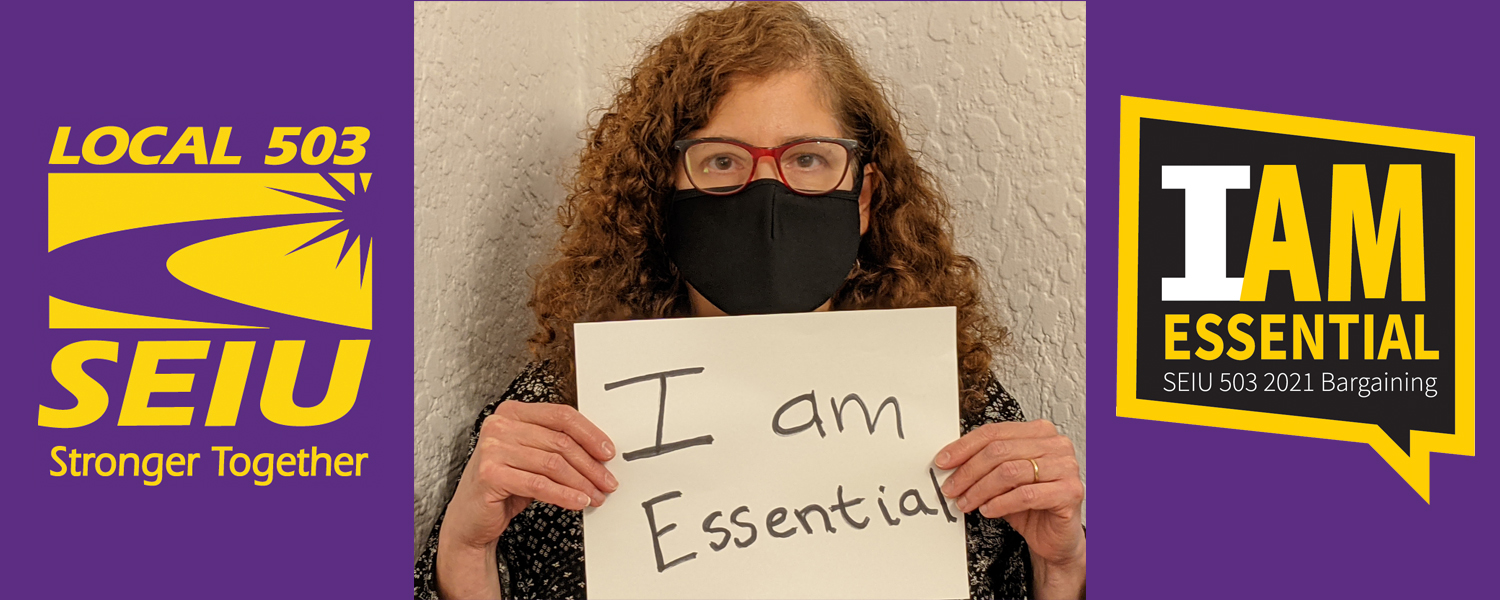Tell DHS to give child welfare workers PPE, telework options and hazard pay!
Oregon Department of Human Services

Oregon’s Child Welfare workers are the foundation of the state's support system for vulnerable children and youth. This workforce protects children, supports families, and serves the community. Every day, SEIU 503 members in Child Welfare investigate abuse and neglect cases, arrange for the proper care and housing of children and youth in need, promote ongoing family-child relationships and safe visitation, facilitate foster care and adoption, and support the reunification of children, parents, loved ones, and other caregivers.
COVID19 is a unique workplace hazard for child welfare workers given our ongoing, direct engagement with children and other members of the public. In Oregon, with increased community spread throughout September, October, and November, worker and client exposure events have steadily risen within the Oregon Department of Human Services (ODHS) – especially in child welfare. When child welfare workers are in highly hazardous work situations with frequent workplace exposure incidents, the hazards ripple out to other ODHS workers, community members, and the general public.
It is possible to make meaningful reductions in exposure and infection rates among Child Welfare and other ODHS workers and those they contact while protecting and supporting families with integrity. Safeguarding community health in the midst of an unprecedented, devastating global pandemic is essential to serving children, youth, and families in Oregon.
Sponsored by
To:
Oregon Department of Human Services
From:
[Your Name]
We, the undersigned ODHS workers and community members, are urgently calling for the following safety measures, to be in effect until Oregon is no longer in a state of emergency:
-Increase access to virtual parent/family visitation when there isn’t a court mandate to meet in person
-Hazard pay for in-person fieldwork: including supervising quarantine, temporary lodging, institutional settings, transports, home-based and in-office visits
-N95 masks (and other appropriate PPE) for staff and community members during contact in confined spaces, including homes and cars (e.g. transports, certifications)
-Upgrade branch air filters to MERV13-standard for all HVAC systems
-Better utilization of COVID-19 testing for children and youth in care, e.g. during placement
-Caseworkers encouraged to maintain primary workstations at home, rather than in branches, responding to safety calls by driving directly to field sites, or driving to their branch beforehand to pick up the vehicle or other supplies
-Well managed rotations of in-person staff support for offices and contingency planning for unexpected interruptions of employment (illness, FMLA/OFLA etc), including both supervisors and represented staff filling in to provide essential services

